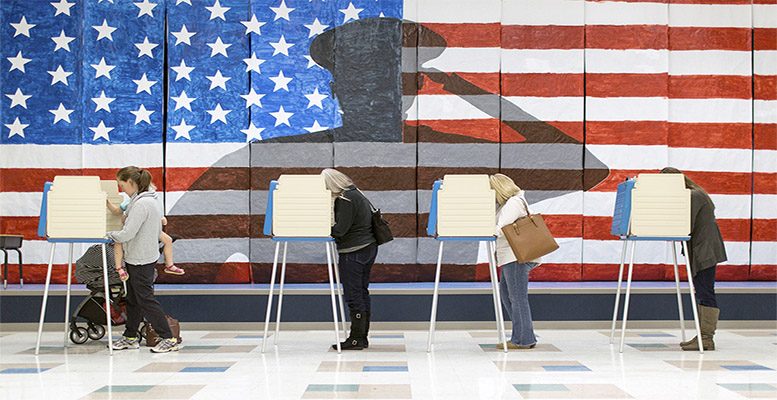With the 2020 US primary election season soon upon us, investors are faced with potentially market-moving outcomes in the next 12 months.
One thing is clear: despite Donald Trump’s atypical governing and communication style over the past three years, his policies — in conjunction with successive rate cuts over the past year — were market friendly. Rollercoaster headlines aside, the market has exhibited a fundamental resilience.
Total returns from the S&P500 were 31.5% last year, even with all the concern over a looming recession, yield-curve inversion, and mounting trade-war worries. From Election Day on November 8, 2016 through year-end 2019, the S&P500 had a total return of 60.8%.
These moves reflect solid US fundamentals, particularly compared with the rest of the world; an elongation of the US economic recovery, in part due to Trump’s corporate tax cuts; and a rebooted and accelerated US labor market.
So how should investors approach the upcoming election season? The market reflects a relatively sanguine view of things. Yet the policy implications of a win on either side are even more dramatic than they have been in previous years. The country is also highly divided politically and the various policy proposals from presidential hopefuls reflect that fact. Furthermore, there is deep anger within the country at the growth of income inequality since the 2007-2009 global financial crisis.
Many of the Democratic policy plans are meant to help address the income gap and Trump as well is more populist than previous Republican presidents. This sets up the potential for a larger US deficit, the fallout from which could affect market confidence.
What’s Priced In?
The Democratic primary season begins Feb. 3 with the Iowa caucuses and continues in weekly succession thereafter. Helpfully, the economic backdrop is solid. Despite a manufacturing slowdown in the US — and an even more acute slump globally— the US consumer, constituting 70% of GDP, continues to power the US economy. Related to this, there has been a positive wealth effect created by the fact that US households are more exposed to equities than they have been since the late 1990s (see chart 1).
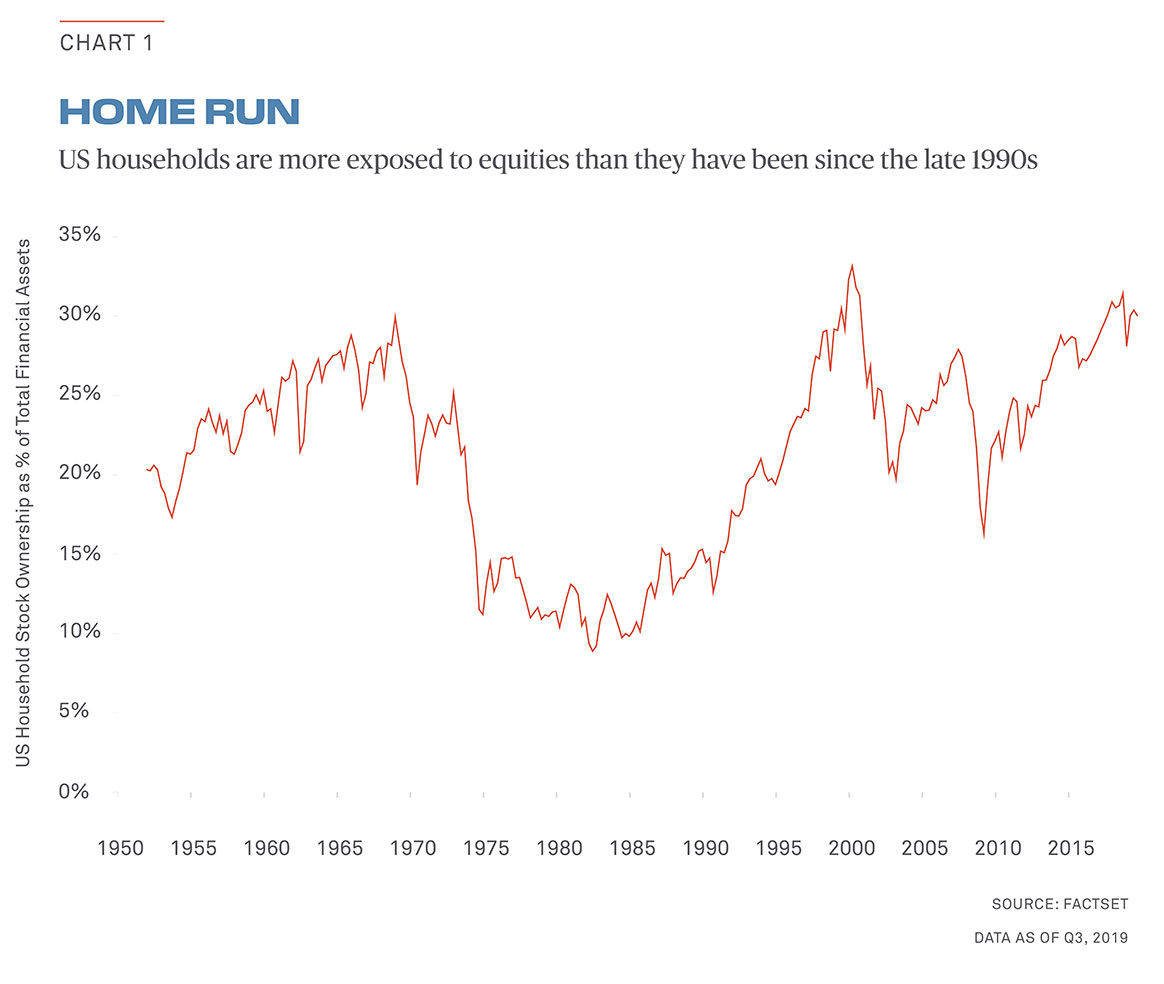
The risk of volatility this year, however, is heightened because of the very different proposals and policy preferences between the Democrats and the Republicans.
The market is currently pricing in more of the same — essentially a business-friendly administration and Republican control of the Senate. In practical terms, that means a second Trump administration or a more centrist Democrat in a Biden or Bloomberg vein.
So what do we know? The betting markets reflect that Trump is predicted to beat all of the top four primary challengers in a general election this November (see chart 2).
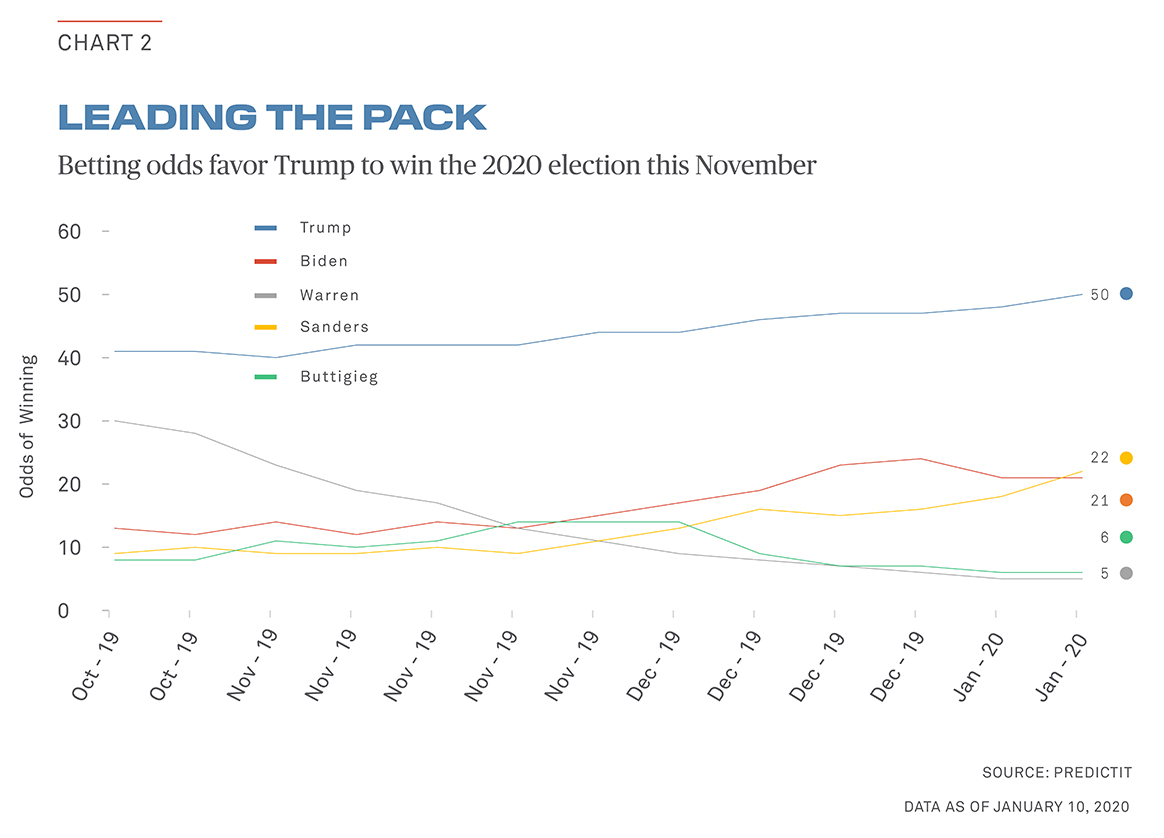
Further, the health of the economy is a key factor in the likelihood of any presidential reelection and recent polling has shown an inflection point in America’s confidence about the economy.
For Trump perhaps more so than his predecessors, equity markets see the economy as the key issue for his reelection. According to December 2019’s Quinnipiac University poll (see chart 3): “Registered voters are feeling more positive about the economy than at any time in the last 18 years, as nearly three quarters, 73%, describe the economy as either excellent or good, while only a quarter, 25%, say not so good or poor.”
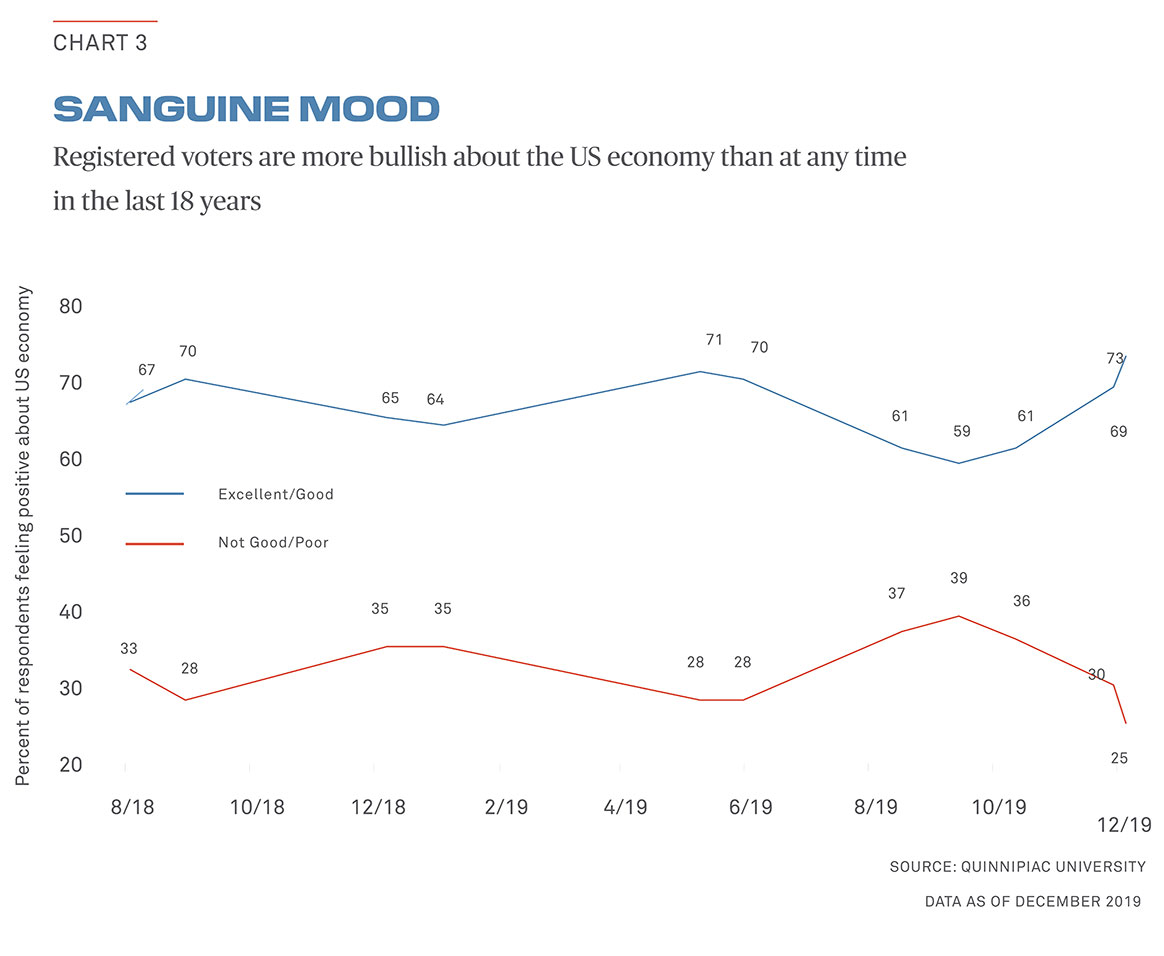
While there are limits to polling data, a swing state CNN poll in December 2019 highlighted this favorable showing by Trump. The polling across Arizona, Florida, Michigan, North Carolina, Pennsylvania, and Wisconsin suggests that, in this election, Trump beats every candidate except for Biden, where he falls short by 1-2% or is tied.
In Iowa, Trump beats every candidate including Pete Buttigieg, the local favorite. The same CNN poll showed a declining favorability among the Democratic candidates across the board. The President appears to be headed into 2020 with an improving electability profile.
On the Democratic side, the betting markets show Biden beating all the other challengers within the Democratic camp on a national basis (see chart 4). In the interim there will be Trump plot twists but the bigger risk for markets is a centrist not getting the Democratic nomination after all.
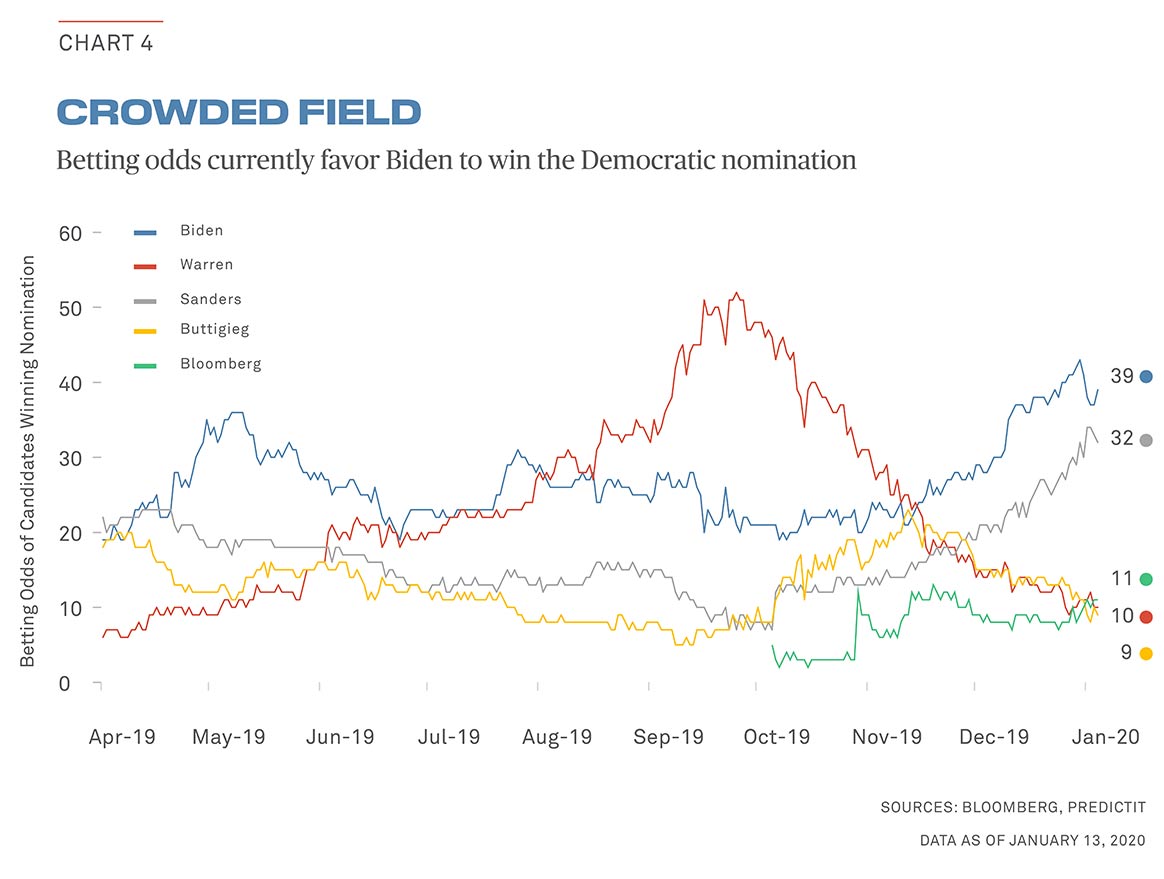
In particular, it looks like Biden and Sanders have been direct beneficiaries of Warren’s loss of momentum after the details of her “Medicare for all plan” emerged in the fall. Biden gets further strength from the recent Iran crisis as he is seen within the Democratic voting population as most capable of directing foreign policy and handling international crises, according to a recent Emerson College poll.
Biden also may benefit from being able to stay in Iowa, along with Buttigieg, as the senators in the race — Klobuchar, Sanders and Warren — must head back to Washington for the Trump impeachment trial.
Finally, if there is any question about whether the stock market even cares about who sits in the White House, look no further than the performance of healthcare stocks in 2019. Healthcare stocks last year traded in negative correlation to Warren’s odds of winning the Democratic nomination.
As Warren rose in the polling during the summer, the entire sector sold off — even during a risk-off market, which is typically when healthcare outperforms (see chart 5). The reacceleration of healthcare stocks in the fourth quarter tells us that the market is less worried about a Warren presidency and the implied impact on the private health insurance industry.
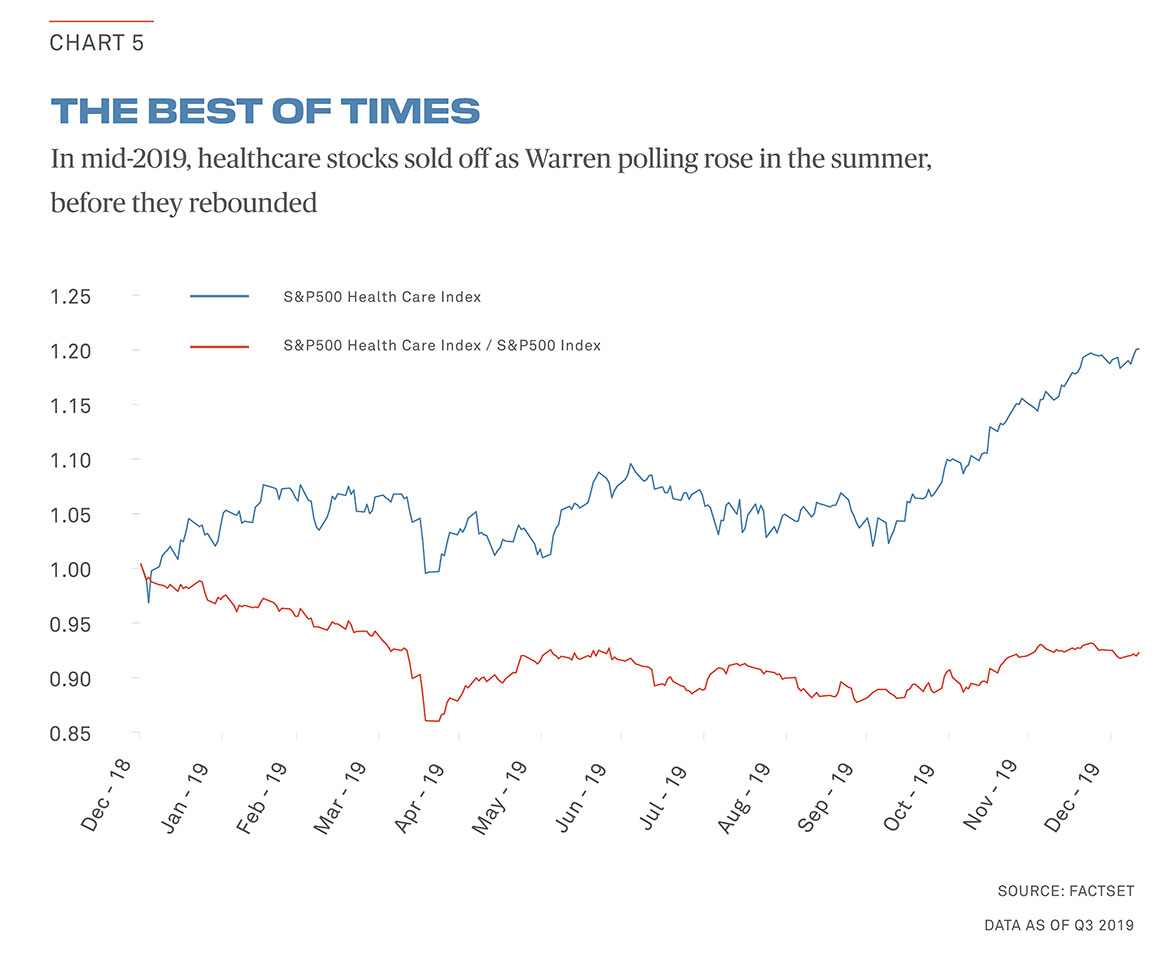
Therefore, at first blush, it seems that the market is on a sound footing with the expectation that either Trump or Biden will win the 2020 election. Compared to Trump, Biden is likely to be easier for US allies, create less tension with China, and ultimately prove to be more business-friendly than the other leaders of the Democratic camp.
But this confidence may prove misplaced.There may be more risk to the markets in the next few months than is currently priced in.

